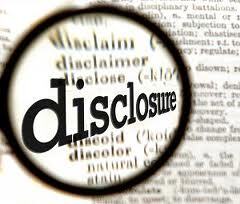How To Disclose
You’re considering whether to disclose an unwanted sexual behaviour to your partner, we understand that this is a huge decision, well done for even taking time to think about it. Disclosure is a courageous act.
When behaviours have been a secret for years, maybe even decades there can be great fear about finally disclosing them. You might have lied or minimized and don’t want your lies found out. It is natural to fear the harm you might cause to your partner and to the relationship.
When behaviours have been a secret for years, maybe even decades there can be great fear about finally disclosing them. You might have lied or minimized and don’t want your lies found out. It is natural to fear the harm you might cause to your partner and to the relationship.

We would encourage you to disclose because then your healing and freedom from the behaviours, the lies and shame can begin. The majority of relationships survive after disclosure if the disclosing partner recognises their betrayal and does the long work of repair.
When these behaviours are ‘discovered’ rather than ‘disclosed’ your partner is left wondering...
- Were you ever going to tell me?
- Would we have continued living the lie?
- What else have you lied to me about? Is there any truth in our relationship?
A disclosure is most likely going to cause immense pain and shock but there are ways to do it badly and ways to do it better than that.
So how do you disclose better than that?
If this is the first time you will have told anyone about these behaviours it is worth choosing someone else to tell before your partner. This could be one of the pastoral staff or a counsellor or a trusted friend. There is likely to be a lot of emotion in you as you try to find words for the first time. The person you tell can be a continued support to you as you work on your own healing after disclosure.
You don’t know how your partner will respond, their response is impacted by so many factors. There is usually a lot of emotion, it will be very uncomfortable for you, it matters that you sit in that moment in all that emotion with your partner. Finding ways to keep your emotions regulated and practising them before your disclosure will help (e.g. slowing your breathing can help you stay present or praying a line of a prayer like “Help me to know your peace God.” You can combine these –as you whisper the prayer you breathe in God’s peace) It can be helpful to remember to respond to your partner with AVR- acknowledgment, validation and reassurance. Your partner may choose to walk out and need some space. They may tell you to go and give them space. Respect their choices but further conversation is vital, you will need to come back to it. Your partner may want a support person with them for further conversation.
Plan what you are going to say, make sure that everything you say is the truth, don’t minimise. It helps to have your disclosure written down.
You don’t know how your partner will respond, their response is impacted by so many factors. There is usually a lot of emotion, it will be very uncomfortable for you, it matters that you sit in that moment in all that emotion with your partner. Finding ways to keep your emotions regulated and practising them before your disclosure will help (e.g. slowing your breathing can help you stay present or praying a line of a prayer like “Help me to know your peace God.” You can combine these –as you whisper the prayer you breathe in God’s peace) It can be helpful to remember to respond to your partner with AVR- acknowledgment, validation and reassurance. Your partner may choose to walk out and need some space. They may tell you to go and give them space. Respect their choices but further conversation is vital, you will need to come back to it. Your partner may want a support person with them for further conversation.
Plan what you are going to say, make sure that everything you say is the truth, don’t minimise. It helps to have your disclosure written down.

But don’t tell all, yet. Your partner may have lots of questions for you, but they are most likely in shock. It is okay and actually better for your partner if you tell them that over time you are prepared to answer all of their questions but you want to give them an opportunity to decide, out of that moment, and with some guidance, what they really want to know and what they don’t want to know. There is no bleach for the brain, once they know something they can’t unknow it.
It is important that you reassure your partner that it isn’t their fault. Even if you were having relationship difficulties, the choice to engage in these behaviours was yours, not theirs.
It is okay to be emotional as you tell them, if they are angry, it is important that you are not defensive.
It is important that you reassure your partner that it isn’t their fault. Even if you were having relationship difficulties, the choice to engage in these behaviours was yours, not theirs.
It is okay to be emotional as you tell them, if they are angry, it is important that you are not defensive.

Don’t ask them to forgive you but do apologise. Don’t expect them to make decisions, they’re in shock.
Assure them that you are going to do all you can to get free of these behaviours and you are going to get help, but only if this is true.
Encourage them to get some support, some help. They can contact a pastoral staff member; we have information and support for them.
Assure them that you are going to do all you can to get free of these behaviours and you are going to get help, but only if this is true.
Encourage them to get some support, some help. They can contact a pastoral staff member; we have information and support for them.
If your behaviours are complex, it is possible that you can’t even remember all you have done, in shame we hide and suppress things, even from ourselves. We recommend you spend time with a counsellor unpacking your behaviours, there are counsellors trained in disclosures. We can recommend counsellors.
If you are feeling suicidal, please immediately get help...
Beyond Blue 1300 22 4636
Lifeline 13 11 14
MensLine Australia 1300 78 99 78
Beyond Blue 1300 22 4636
Lifeline 13 11 14
MensLine Australia 1300 78 99 78
If you would like some more information about disclosure...
https://www.husbandmaterial.com/blog/full-disclosure-how-to-tell-her-about-the-porn-with-dan-drake-and-dr-janice-caudill
Dan Drake & Dr Janice Caudill’s books for the discloser-
https://www.husbandmaterial.com/blog/full-disclosure-how-to-tell-her-about-the-porn-with-dan-drake-and-dr-janice-caudill
Dan Drake & Dr Janice Caudill’s books for the discloser-
- Full Disclosure: How To Share The Truth After Sexual Betrayal
- Your Disclosure Document: A 10-step Guide
Support
We are here to support you, so please don’t hesitate to reach out.
Ali Box and the Pathways to Freedom team
Ali Box 0432 098 302 ali@ncr.org.au
If you would like to talk with someone who has found freedom from these unwanted sexual behaviours themselves contact –
Ali Box and the Pathways to Freedom team
Ali Box 0432 098 302 ali@ncr.org.au
If you would like to talk with someone who has found freedom from these unwanted sexual behaviours themselves contact –
